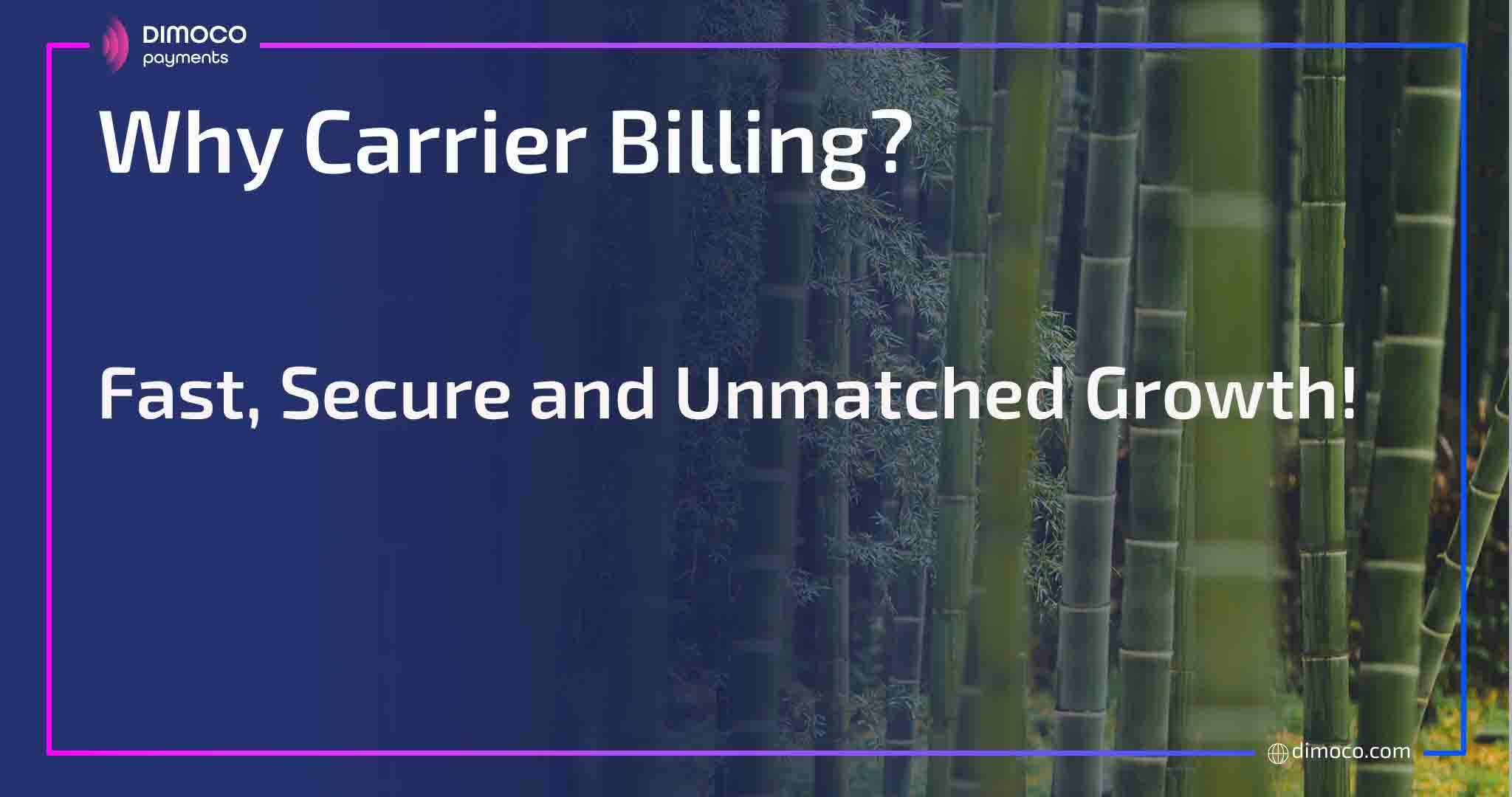Clemens Leitner about Carrier Billing
Clemens Leitner, the CEO of DIMOCO Payments, elaborates on carrier billing and its reputation, providing insights into its main benefits and pain points based on different jurisdictions.
Europe is a highly digitalised region, with hundreds of payment methods available to cater to a broad audience, both banked and underbanked. Where does direct carrier billing stand in the market, and how does it differ from other payment methods?
Carrier billing (CB) holds a unique position within Europe’s payment landscape. The payment method has found a niche, and it is a preferred choice for several digital transactions. It excels in facilitating microtransactions and the purchase of digital content, such as mobile apps, games, digital media, and more. It is also an inclusive way to make payments, and can be used by those who may not have access to traditional banking. For many consumers, especially those hesitant to divulge sensitive financial information online, this method offers peace of mind by reducing exposure to potential security risks.
CB’s success is down to its accessibility, ease of use, and suitability for microtransactions. It cultivates trust among consumers – and offers both banked and underbanked individuals a frictionless payment experience.
Can you provide more insights on the overall adoption of CB? What are the main benefits and pain points of it based on geographies and jurisdictions?
The adoption of CB varies across geographies and jurisdictions and is influenced by a range of factors. In regions with high mobile device penetration and a growing digital economy, CB has seen strong growth. However, a large factor for increased adoption is the awareness among mobile network operators (MNOs), merchants, and end users. For example, in Germany, Poland, and Austria, we are working with MNOs and providers to actively promote the possibility of paying via CB in their customer base – and we are seeing a larger take-up.
Within the EU, the laws are quite restrictive. MNOs are only allowed to process CB transactions if they are micropayments (under EUR 50) and for digital goods. To open CB for a wider variety of goods, we provide MNOs the option to act as a payment agent of DIMOCO Payments, as a licenced payment service company.
Overall, the level of adoption and the perceived benefits and pain points of carrier billing can vary widely based on the specific context of each region and the existing mobile payment ecosystem. We provide guidance to find the right CB strategy that maximises revenue and reduces complexity.
How do DIMOCO Payments’ core solutions differ from other similar players in the field, and can you please share more about your Mobile Identity Services?
Many in the industry are unaware or not up to date with the recent changes in CB and how it has become a competitive payment method in the crowded marketplace. Its potential, when harnessed correctly, is huge. What makes our solution unique is our strong understanding of its capabilities and our close partnerships with MNOs.
We created a solution to navigate the strict EU regulations regarding CB. The MNOs act as our agents, meaning users can purchase – at our partner merchants – physical goods and services instead of being restricted to digital materials. In Germany, we worked with the MNOs to establish Zahl einfach per Handyrechnung. Under this brand and with DIMOCO Payments’ payment licence, the largest German MNOs allow users to make day-to-day purchases. It is currently in operation with bike rental centres, vending machines, EV charging stations, public transport, and more. We use this model throughout the EU to facilitate payments and widen the scope of CB payments.
Our ties with MNOs allow us to explore other avenues. Mobile phone numbers are the most omnipresent, reliable, and long-lived identifiers of the digital age – they are the ideal digital identity of the mobile world. Mobile phone numbers exist only once, are tied to one person, and are network-based. The MNOs have a pool of this unique and non-manipulable data. We are working with them so that this information can be used for authentication and identification purposes.
For example, with the data from the MNOs, we can tackle SIM swapping. This occurs when fraudsters take control of a SIM card using stolen personal data through social engineering techniques. The service provider (merchant) receives information on the last SIM change for a mobile phone number – and so, an indication of whether the SIM card has been swapped. This enables the setup of configurable risk tolerances to avoid any fraudulent transactions (independently of their business nature).
Our Mobile Identity Services, which also include KYC match and phone number verification, born from our strong ties to the network operators, will be used to provide seamless authentication and verification. They can be used on their own or as part of a payment to help mitigate fraud through unique risk assessment and management, all the while enabling a better user experience.
Finally, how do you see the future of carrier billing? Can the model be spread to include paying for physical goods and services too?
As smartphone adoption continues to grow, this payment method becomes even more relevant. It is a straightforward and secure means of conducting financial transactions. It aligns with the cashless trend, enabling individuals to access digital goods and services, pay bills, and make small purchases conveniently. As long as mobile phones remain prevalent and mobile carriers continue to support this payment method, CB is likely to play a vital role in the digital economy.
The expansion of CB to include payments for physical goods and services is already on the way. As technology and infrastructure continue to advance, CB could become a viable option for a broader range of transactions. However, several challenges must be addressed, including ensuring security, fraud prevention, and regulatory compliance when handling larger, more complex transactions. Collaboration between mobile carriers, merchants, and payment service providers will be crucial.
The success of this expansion hinges on several factors: increased transaction limits, seamless integration with point-of-sale systems, and user education. Regardless, it holds the potential to simplify payments further for consumers and offer a viable alternative to traditional payment methods.
This editorial piece was first published in the Paypers Payment Methods Report 2023, which provides an in-depth overview of the latest worldwide developments in how people pay, the payment methods space, the innovative technologies that these methods work upon, and the best strategies on how to win at conversion and retention.



